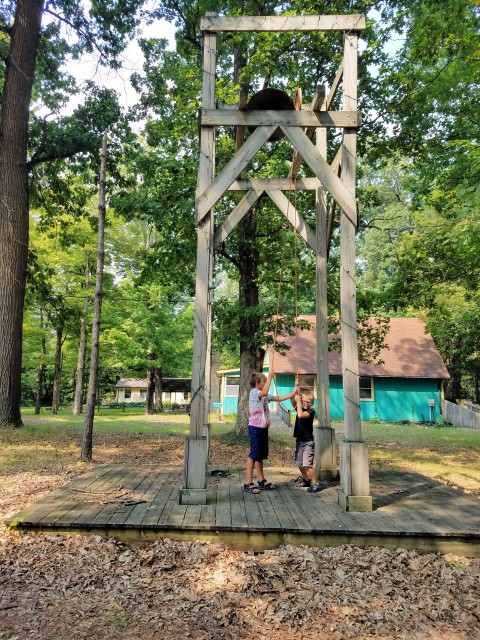United Methodist conference sells land back to Native people

Though the electricity was turned off in all buildings on the site, visitors arriving at Crystal Springs camp on September 12 for its official decommissioning were embraced by the sacred power of the place. Until its closing in 2019, Crystal Springs had been a United Methodist camp and retreat center for 160 years.
But earlier this year, Michigan Area United Methodist Camping sold the Dowagiac, Michigan, campgrounds to the Pokagon Band of Potawatomi. The United Methodist group could no longer maintain the grounds, due to increasing costs and declining membership.
Read our latest issue or browse back issues.
In a statement made in mid-August, David Berkey, MAUMC’s executive director, explained that the organization had reached out to the Pokagon Band about buying the campgrounds, because selling the land to them was the “right thing to do” from a justice standpoint.
“Before Europeans settled here, all of Michigan was Native American land. We felt it was an important gesture toward restorative justice to return the land in this way,” he said.
Crystal Springs is adjacent to existing Pokagon land, where powwows are held and where the tribal headquarters is located.
Berkey invited those gathered for the September decommissioning to spend quiet time walking the grounds. Some headed for cottages they had helped to paint and maintain over the years. Others closed their eyes and “saw” structures that are no longer standing.
“Without a doubt, this is a very holy place,” said Jeff Parsons, who served as director of Crystal Springs camp from 2006 to 2012. “I will always remember the times down at the springs, putting my hands in that holy water.”
Once the group gathered in the chapel, Steve Winchester, a member of the Tribal Council of the Pokagon Band, greeted the assembly. “We are here today to hear stories and share values. Whatever your belief system, we honor that. We believe in the freedom of religion, to stand anywhere to talk and listen. We are all here to develop a relationship between ourselves and the Creator.”
Before reading the formal statement of deconsecration, David Bard, presiding bishop of the UMC Michigan Conference, noted that “with deconsecration, the sacredness does not go away. It is now in the hands of people here before us, who will now use it well. It is sacred because of all the stories we heard today, of the way God touched your lives because you were at this camp. You are part of its sacredness.”
COVID-19 has slowed down the Pokagon’s plans for the land, but Winchester said it will be used by Potawatomi citizens.
“Some buildings will likely be torn down and others built. We are not going to clear-cut all the trees. Our desire is to preserve the property,” he said. —Michigan Conference of the United Methodist Church






